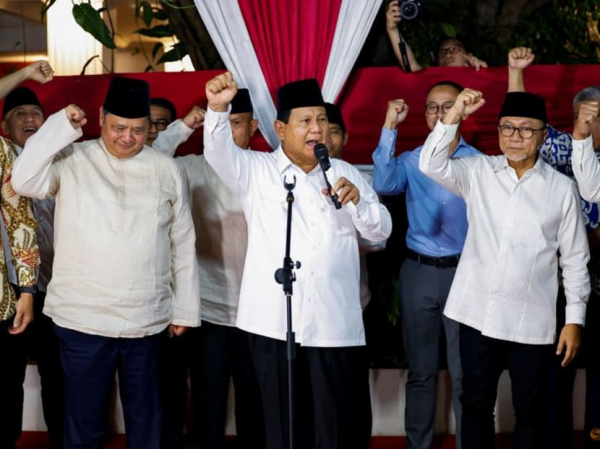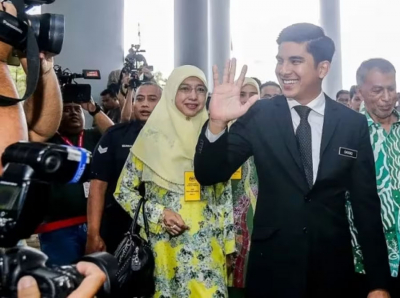Verdict Awaited: Indonesia Court Deliberates Petitions for Presidential Election Re-run

Verdict Awaited: Indonesia's Constitutional Court to Decide Fate of Presidential Election Challenges
Jakarta, Indonesia — On Monday (April 22), Indonesia's judicial system will render a crucial decision on two contentious petitions challenging the outcome of February's presidential election. The petitions, filed by defeated candidates, allege undue state interference in favor of the declared winner, Prabowo Subianto.
Both contenders against Defense Minister and former special forces commander Prabowo Subianto have appealed to the Constitutional Court, seeking to disqualify him from an election he clinched with a significant margin. Their argument revolves around the purportedly widespread distribution of social aid in pivotal regions, allegedly tilting the vote in Prabowo's favor. However, Prabowo, who secured 58 percent of the votes, vehemently refutes these claims as unfounded.
Former governors Anies Baswedan and Ganjar Pranowo further contend that tacit support from the immensely popular President Joko Widodo unfairly benefited Prabowo's candidacy. They also criticize the inclusion of the outgoing leader's son, Gibran Rakabuming Raka, as Prabowo's running mate, citing a controversial decision by the same court to alter eligibility criteria shortly before the registration period. This decision allowed Gibran, aged 36, to join Prabowo's ticket.
The Constitutional Court, under the leadership of the president's brother-in-law at the time, faced scrutiny for altering candidate eligibility rules just days before registration, prompting an ethics investigation. The chief justice, accused of allowing external interference, faced repercussions and was barred from election-related cases.
Prabowo and the outgoing administration of President Joko Widodo have adamantly denied any allegations of interference. Cabinet ministers, testifying during the court proceedings, denied deploying social aid for political gains. However, critics have raised concerns about potential abuse of power by President Jokowi to sway the election outcome and safeguard his legacy after a decade in power.
Former Jakarta governor Anies Baswedan has sounded alarm bells over a potential erosion of Indonesia's democratic principles, cautioning against a return to authoritarianism reminiscent of the Suharto era, which lasted for 32 years until 1998.
Legal Experts Weigh In: Potential Outcomes in Indonesia's Electoral Dispute
Legal scholars speculate on the possible verdicts as Indonesia's Constitutional Court prepares to address the contentious complaints lodged against the presidential election outcome. Experts suggest the court may dismiss the grievances outright, opt for localized re-elections in specific regions, or even entertain the drastic measure of conducting a nationwide ballot excluding both Prabowo and Gibran, a proposition advocated by Anies and Ganjar. However, analysts view the latter scenario as improbable.
Titi Anggraini, a legal expert hailing from the University of Indonesia, casts doubt on the likelihood of excluding Gibran, citing the Constitutional Court's prior ruling. "The decision to include Gibran was issued by the Constitutional Court, so it's unlikely the court will contradict its previous decision," she remarked, echoing sentiments shared by others in the legal community.
In conclusion, Indonesia's Constitutional Court stands at a pivotal juncture as it prepares to deliver its verdict on the disputed presidential election. While legal experts speculate on potential outcomes ranging from dismissal of complaints to localized re-elections, the prospect of a nationwide ballot excluding Prabowo and Gibran remains contentious. Amidst these deliberations, the integrity of the court's prior rulings and the principles of democracy weigh heavily on the decision-making process, shaping the trajectory of Indonesia's political landscape.


